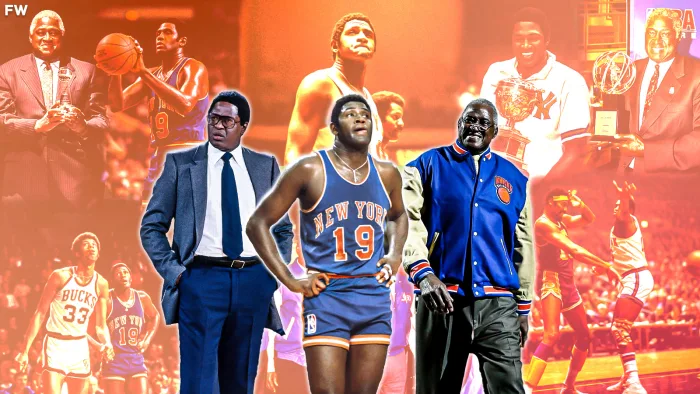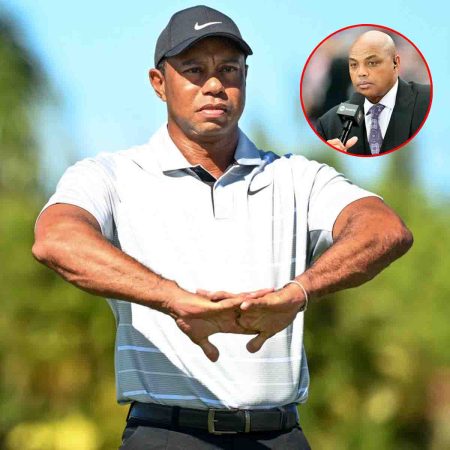Willis Reed, a small-town kid from Louisiana, is one of the greatest basketball players of all time. He was the face of the New York Knicks during their championship runs in the early 70s, and his legacy still resonates with basketball fans today.

But before he was a basketball legend, Reed was just a kid with a passion for the game. In this article, we’ll take a look at Reed’s journey from a small-town kid to an NBA legend. We’ll explore his early years, his college career, and his rise to fame as a professional basketball player.
We’ll also examine some of the key moments in his career, such as his heroic performance in Game 7 of the 1970 NBA Finals. Whether you’re a die-hard basketball fan or just interested in learning more about one of the greatest players of all time, this article is for you.
Willis Reed: A Small-Town Kid Becomes A College Star
Willis Reed is a legendary figure in the world of basketball, known for his incredible talent, leadership, and determination on the court. Born on June 25, 1942, in Hico, Louisiana, Reed grew up in a close-knit family and began playing basketball at a young age.
Raised as the only child of Willis Sr. and Inell Reed, the small-town boy learned the value of hard work and determination from a young age. His parents instilled in him the importance of education, and he excelled in his studies, even as he pursued his love of basketball.
Reed played for his local high school team, where his talent was quickly recognized. His skills on the court helped earn him a scholarship to Grambling State University.
Despite facing discrimination and segregation during this time, Reed remained determined to succeed both academically and athletically. He worked hard to hone his basketball skills, spending countless hours practicing and perfecting his game.
At Grambling State University, Reed became a standout player and led the team to multiple victories. These victories include leading his 13th-seed Grambling College to a 95-75 upset victory over the third-seed Georgetown College (KY) in the 1961 NAIA title game.
Reed also led his school to three Southwestern Athletic Conference championships, and as a senior, Reed averaged an incredible 26.6 points and 21.3 rebounds per game. The small-town kid finished his collegiate career with 2,280 career points, and his attention quickly turned to the NBA.
Willis Reed Becomes King Of New York
Willis Reed’s impressive performances in college caught the attention of scouts from the NBA and the attention of Team USA. Reed was selected to be a member of Team USA in the 1963 Pan American Games held in São Paulo, Brazil.
The small-town kid now had a chance to showcase his skills on the national stage. There, Reed would help Team USA bring home the gold medal by averaging 8.5 points per game. Team USA finished with a perfect 6-0 record.
In 1964, Reed was drafted by the New York Knicks as the first pick in the second round of the NBA Draft. Now a part of the world’s biggest basketball league, Reed was ready to show everyone how good this small-town kid was.
Reed’s arrival in New York was met with a mixture of excitement and skepticism from fans and analysts alike. At the time, the Knicks were a struggling team that had failed to make the playoffs in their last five seasons.
Some questioned whether Reed, who was relatively unknown outside of the college basketball world, would be able to make an impact at the professional level. This narrative would quickly be put to rest once New Yorkers saw their draft pick play.
Reed quickly established himself as a star player in the NBA, earning a reputation as a fierce competitor with an unparalleled work ethic. He was known for his impressive scoring ability, his skill as a rebounder, and his tenacity on defense.
As a rookie, Reed averaged 19.5 points and 14.7 rebounds per game, earning him Rookie of the Year honors. The Knicks finished with just a 31-49 record, which led to them missing the playoffs for a sixth consecutive season.
Still, the arrival of Reed in New York had fans buzzing, as they knew this guy could be the one to lead the Knicks to their first NBA championship.
The Knicks had reached the NBA Finals three times before Reed was drafted, and all three times, they failed to bring New York a championship. Reed wanted to bring New York a title, but first, he had to lead the Knicks back to the NBA playoffs.
The Knicks would make it back to the playoffs during Reed’s third year when he led the Knicks to a 36-45 record. This record wasn’t ideal for the Knicks and their fans, but at least they were back in the postseason.
The Knicks would get bounced in the first round 3-1 to the Boston Celtics, who were led by Bill Russell. Still, Reed showcased his ability in his first-ever playoffs.
Reed averaged 27.5 points and 13.8 rebounds per game in the four games. The Knicks were out of the playoffs, but the future for basketball in New York truly was looking bright, and it was all thanks to Willis Reed.
Reed Delivers New York Two Titles And Secures His Legacy
Willis Reed continued to raise the level of his play, and once his team got better, thanks to adding a star player in Walt Frazier, the Knicks quickly became title contenders. Reed would separate himself from the other star players in the league when he won both the 1969-70 MVP award and the 1969-70 All-Star Game MVP.
In his MVP season, Reed averaged 21.7 points and 13.9 rebounds on 50.7% shooting. He also led New York to a 60-22 record, the best in the league.
In the 1970 All-Star Game, Reed scored 21 points on 9-18 shooting while adding 11 rebounds. He led the East to a 142-135 victory.
Reed would continue his great play in the playoffs, leading New York to the NBA Finals, where they’d run into the Wilt Chamberlain-led Los Angeles Lakers. The Knicks had a solid team, but so did the Lakers with Chamberlain, Jerry West, and Elgin Baylor.
It sure would be a tough task for New York to bring the city a championship, but Reed was up to the challenge. Reed would show LA that he deserved to win the MVP award from the opening tip of Game 1.
Reed put up big numbers in the first four games of the series, with 37, 29, 38, and 23 points, respectively. The New York big man also added rebounds of 16, 15, 17, and 12, respectively.
The series was tied 2-2 after four games, with the series returning to New York, and the Knicks were ready to take over the series and end it. Then, the unthinkable happened to Reed.
Reed would only play eight minutes of Game 5 because he tore his thigh muscle in his right leg. Luckily, the Knicks escaped with a 107-100 victory and led the series 3-2. LA would bounce back to force a Game 7 after Wilt Chamberlain took advantage of not having Reed guard him by scoring 45 and adding 27 rebounds.
With Game 7 in New York and the championship on the line, Willis Reed knew something had to be done. He knew his team needed him, even just for a little.
“I didn’t want to have to look at myself in the mirror 20 years later and say I wished I had tried to play,” Reed later said.
Reed would take painkiller injections in the locker room, and what happened next would go down as one of the greatest moments not just in New York Knicks history but NBA history.
Reed limped out of the locker room just before tipoff, and the New York crowd roared. No one expected Reed to play, but the thing about small-town kids, they’re a tough breed.
Reed went on to score the first two baskets of the game, sparking a dominant performance from the Knicks. His presence on the court was a huge inspiration to his teammates.
Reed would not score another basket, but his teammates would pick up the slack, led by Walt Frazier, who scored 36 points while adding 19 assists. The Knicks would go on to win their first NBA championship with their 113-99 victory.
Reed would be named the Finals MVP, making him the first player in NBA history to win the regular season MVP, All-Star Game MVP, and Finals MVP in the same season.
During Reed’s tenure with the Knicks, New York would reach the NBA Finals two more times. First, in the 1971-72 season where they’d run into the Lakers again, this time losing 4-1.
Reed was bothered by severe tendonitis in his left knee all season long, and he’d play in only 11 games and miss the NBA Finals. The following season, Reed would play in 69 games and help the Knicks reach the NBA Finals, where they’d play the Lakers once again.
With Reed back and averaging 16.4 points and 9.2 rebounds per game, the Knicks easily won their second title with a 4-1 series victory over LA. For the second time in his career, Reed was named the Finals MVP.
Injuries would eventually force Reed to retire, with the 1973-74 season being the last season he played in. Reed finished with career averages of 18.7 points and 12.9 rebounds per game while shooting 47.6% from the field.
After retiring from basketball, Willis Reed remained active in the community and continued to inspire people through his philanthropic work. He became a mentor and role model for young athletes, helping them to achieve their dreams on and off the court.
In 1982, Reed was inducted into the Naismith Memorial Basketball Hall of Fame, cementing his legacy as one of the greatest players of all time.
After retiring, Reed would return to the NBA and the Knicks as their coach in the 1977-78 season. In his first year as coach, Reed led the Knicks to a 43-39 record and a playoff berth.
The following season Reed would coach the Knicks for 14 games before leaving the team. Reed would return to coaching on the collegiate level when he became an assistant coach for St. John’s University during the 1980-81 season and as head coach of Creighton University from 1981 to 1985.
Reed would continue his NBA coaching career in the 1985-86 season when he became the Atlanta Hawks assistant coach. He would become the New Jersey Nets head coach in the 1987-88 season and coach the Nets for two years.
Reed would move on to the front office and become the Nets’ general manager and vice president of basketball operations from 1989-1996. In 1996, Reed moved up to senior vice president of basketball operations for the Nets and helped turn New Jersey into a championship contender, where they made the NBA Finals in 2002 and 2003.
Reed finished his front-office career in the NBA when he became vice president of basketball operations for the New Orleans Hornets in 2004 and worked in this position until 2007, when he retired.
Willis Reed sadly passed away on March 21, 2023, but his story continues to inspire people from all over the world. His impact on the basketball world cannot be put into words, as he meant so much to the game.
In addition to his impact on the game, Reed is also remembered for his character and integrity. He was a humble and hardworking player who always put his team first. His dedication to his craft and his commitment to excellence is an inspiration to basketball players and sports fans around the world.
Rest in peace, legend.
Source: fadeawayworld








